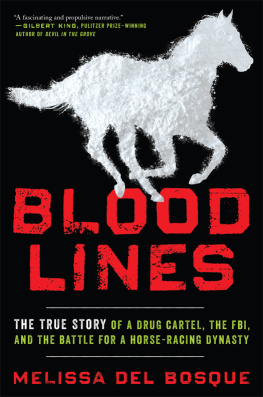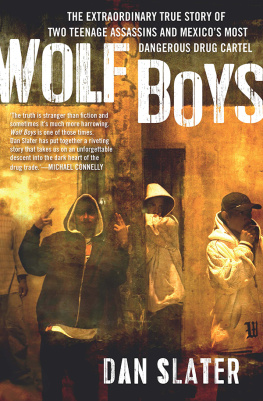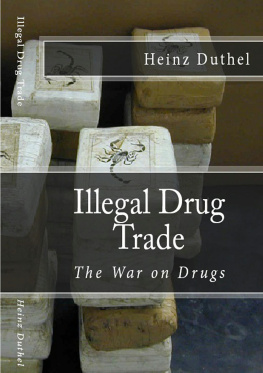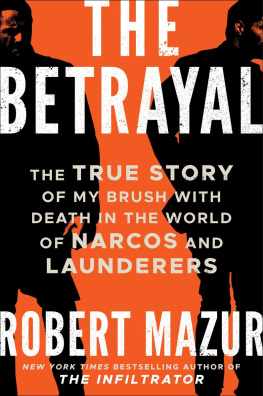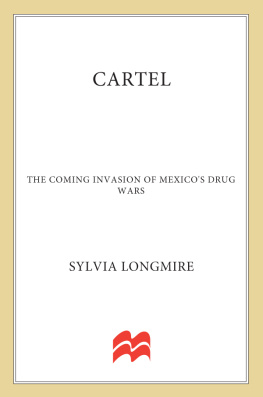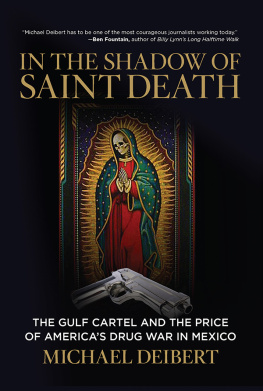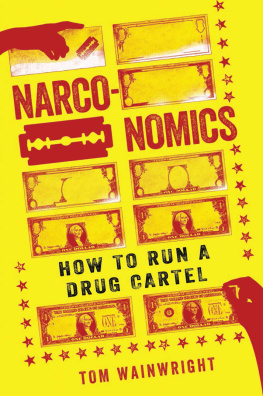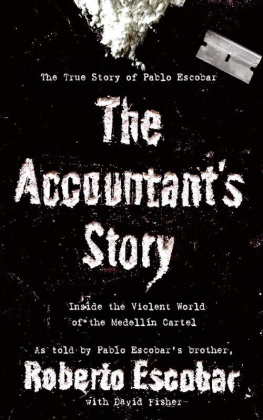La hora ms oscura es justo antes del amanecer.
S PECIAL AGENT SCOTT LAWSON PULLED INTO THE EMPTY PARKING LOT AND killed the engine. He could hear the muffled cadence of automatic rifle firepop, pop, pop, popechoing from across the river in Mexico. He rolled down his drivers side window, shielding his eyes from the South Texas sun with his left hand.
Lawson was new to Laredo, Texas, and hed come to the park by the river because it was as close to Nuevo Laredo as he could get without entering Mexican territory, which was out of his jurisdiction. The Mexican city was less than a quarter mile from where he sat in his beat-up Chevy Impala, but it felt a world away. He surveyed the wide expanse of the Rio Grande as it flowed languidly underneath the international bridge toward the Gulf of Mexico.
Hed heard that the rivers calm could be misleading, that there were hidden undercurrents. The Mexicans called it the Rio Bravothe fierce river. Lawson got out of his car and walked to the edge. From the riverbank, he could see a chaotic jumble of telephone lines and electric wires, Spanish billboards, and crumbling white colonial-style buildings similar to the ones in downtown Laredo. The two cities could have been as one if it werent for the river.
He winced instinctively as the staccato of rapid gunfire rang out again across the river. A pillar of black smoke rose in the sky. Something was burning. He couldnt tell what. A Mexican flagthe largest flag hed ever seenbillowed in the warm afternoon breeze near the customs office on the other side of the bridge. He realized he couldnt have been farther from home in Tennessee. But as a rookie hed had no choice where the FBI sent him. And after six weeks on the border, he was still trying to make sense of where hed landed.
Every day at his desk he read about the carnage and saw the grisly photos on websites like Borderland Beat, which obsessively reported every twist and turn in the drug war in Mexico. But it still felt abstract to him. Thats why hed left his office and driven to the edge of the river when hed heard that another gun battle had broken out in Nuevo Laredo. But as he stood on the riverbank, a tall and blond gringo in cowboy boots so obviously out of placelike some fool target, he thoughthe could see nothing of the Zetas or the Gulf Cartel, who had declared war against one another only a few days ago. He could only hear the percussive echo of automatic gunfire and see traces of smoke as the two factions fought for territory, the violence spilling out across Nuevo Laredo.
All around him, life carried on as usual on the American side of the river. The region was already seven years into the drug war, and it had all taken on a surreal normality. A block away from where hed parked his squad car, people went about their shopping in the downtown stores, while Mexicanssome of them innocent bystandersdied in the city across the river. The FBIs sources in Mexico had already predicted that this war would be even more vicious than the last, when the two former allies had battled the Sinaloa Cartel for the city five years earlier. Back then, in 2005, Nuevo Laredos police force had been wiped out, their bodies quartered and decapitated and left in plastic trash bags by cartel gunmen. The Mexican army had patrolled the streets in armored personnel carriers, and people had called the city Little Baghdad.
Lawson had been told his first week in Laredo that it would be his job to make sure the violence didnt spill across the river. But so far hed spent most of his time sitting in a gray-carpeted cubicle, studying an FBI policy manual the size of a phone book and writing up reports, which they called 1023s, for the FBIs intelligence analysts on any information he could gather about the escalating violence south of the Rio Grande.
He missed working the streets as a deputy outside Nashville. As he stood at the edge of the river, thirty years old and with the new gold FBI badge clipped to his belt beneath his shirt, he wondered whether hed made a mistake. Growing up, hed idolized small-town cops like his dad. But his dad had insisted on something more for him than a cops meager salary. He had drilled into him from an early age the idea of joining the FBI. But what was the point of being part of an elite federal agency if he was stuck behind a desk? Nuevo Laredo is on fire, he thought darkly, and Im writing reports about it.
AT THE TRAINING ACADEMY, no one had bothered to tell Lawson that Laredo was considered a hardship post. Very few agents volunteered because it was too close to the drug war in Mexico for agents with families, and many felt isolated there if they didnt speak Spanish. As a rookie, he was the perfect candidate, because he had to go where the bureau sent him. Even better, he had no wife or kids to consider in the equation. Since it was a hardship post, he had to commit to staying for five years. But there was a payoff. If he stuck it out, he could choose his next city, and most agents didnt get that privilege until theyd been in the FBI for more than a decade. He was still young, he thought, and in five years he could be back home in Tennessee.
Hed arrived a week before Christmas in 2009, with a few duffel bags filled with clothes and a cowboy hat hed bought in San Antonio. From San Antonio, hed driven south through mostly empty ranchland. As he started to worry hed gone too far, with signs on the interstate pointing toward Mexico, hed arrived at the outskirts of Laredo. With a population of fewer than 240,000, it wasnt a big city. Laredo splayed out along a bend in the Rio Grande. On the other side of the river was Mexico and a sprawling Nuevo Laredo that was twice as large as its American sister city. Maybe thats why Laredo felt so rootless. Four vehicular bridges and a railroad bridge linked the two cities. The traffic pulsed back and forth across the bridges at all hours of the day, most of it tractor-trailers carrying cargo south into Mexico or north toward other parts of the United States or Canada. When hed researched Laredo, hed learned it was called Americas truck stop because it was the largest inland port in the country. Every day, more than twelve thousand semi trucks traveled through the border city. Their diesel fumes left a blue haze that gave the air a metallic taste.
He wondered why the FBI had chosen to send him to the border. Maybe it was the five weeks of Spanish in Mexico, which he was now struggling to remember. Maybe it was because hed worked narcotics. On the Rutherford County drug interdiction task force, hed arrested his share of dealers and helped seize kilos of meth, marijuana, and black tar heroin on the interstate. Hed interviewed smugglers after seizing their drug loads and seen real fear in their eyes when they told him about their relatives back in Mexico who would die because theyd lost the load. Hed thought he understood.
But before hed left the FBIs training academy in Quantico, Virginia, hed been pulled aside for a special briefing after the others had gone home. He remembered the gory images, one after another, of beheadings, dismembered torsos with the letter Z carved into them, flickering across the instructors computer screen. The Zetas were a new kind of cartel, hyperviolent and military-trained, the instructor told him. Formed in 1999 by deserters from Mexicos elite Special Forces, the Grupo Aeromovil de Fuerzas Especiales, or GAFE, theyd started off as bodyguards and enforcers for the Gulf Cartel but had turned into a cartel in their own right, spurring unprecedented violence and brutality in the drug war. The Zetas were fighting for control of the U.S.-Mexico border, his instructor said, and they were killing people in Laredo too. You have no idea what youre getting into, hed warned. Every day your life will be on the line.

